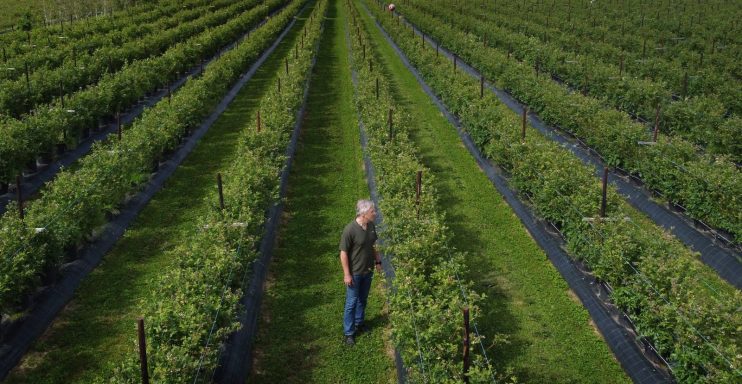First summer post-Brexit: Panic among desperate UK farmers as hundreds of thousands of fruit pickers stay away

Farmers across the UK are in panic mode as the busiest season of the year is about to start but they are faced with a shortage of hundreds of thousands of European workers.
In fact, there is such a “massive whole” in the number of available fruit and vegetable pickers that it is putting farmers across the country on the brink.
At one Kent-based company, the numbers of seasonal fruit pickers are down by over 90 per cent, leading to serious concerns over the company’s future.
Stephen Taylor, managing director of Winterwood Farms, said the labour market has got “tighter and tighter” this year and farmers are finding it impossible to find sufficient people to even carry out the most basic duties.
The UK’s departure from the European Union has led to a major drop of fruit pickers and seasonal labourers coming to Britain.
“We are not talking about a few tens of thousands, we are talking hundreds of thousands of people less to work in the UK,” he said. “That’s a massive hole”.
Taylor warned the impact of Brexit on the flow of workers to UK farms is only getting worse.
“95 per cent of all fruit and produce picked and packaged in this country is done by eastern Europeans,” he explained. “From the end of June, people who haven’t got pre-settled status, at least, can’t work.”
From twenty to two applications
Two years ago, Taylor’s company received about 20 applications a day from people wanting to come to the UK to work picking fruit, but this year it is just two a day.
“We are right at the brink now,” he said.
Winterwood Farms tuns more than 2,000 hectares of farmland across the UK, France, Poland and South Africa, packaging and marketing fruits to retailers and supermarkets. They are the largest growers of blueberries in both Europe and Africa.
At their premises near Maidstone in Kent, Taylor said they are busy getting ready for the summer season.
Taylor referenced the UK’s unemployment rate, which stood at 4.8 per cent of over-16s for January to March, but said it varies by region, and issues arose where British workers did not live in reach of farms.
“If we want the Brits to do that work they need to be mobile.”
“The solution is for the Government to recognise the fact that these people, they come and they go back home, so they don’t have any recourse to public funds,” he added.

Nick Marston, Chairman of British Summer Fruits, said the soft fruit industry faces decreasing numbers of seasonal workers from the EU and the “impossibility of recruiting a significant proportion of our large workforce from UK residents”.
However, despite Brexit and restrictions on the free movement of workers, the industry has generally been able to recruit a large enough workforce for the current soft fruit season, he added.
Response from the government
A spokesperson from the Department for Environment, Food and Rural Affairs (Defra) said the government will “always back our farmers and growers” and ensure producers across the UK have the support and workforce that they need.
Earlier this year, the Seasonal Agricultural Workers visa scheme – which allows people to come to the UK for up to six months to do farm work – was expanded from 10,000 visas in 2020 to 30,000 for 2021.
A Defra spokesperson said: “Seasonal workers provide vital labour to ensure that local produce gets onto supermarket shelves.
“We will always back our farmers and growers, and ensure that producers across the UK have the support and workforce that they need,” he concluded.